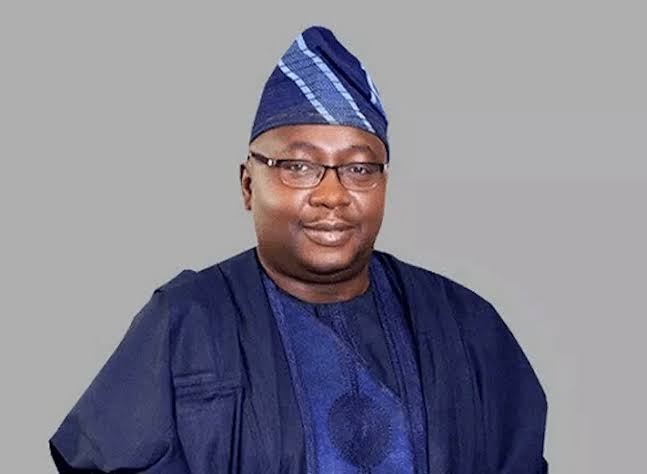Nigeria’s power sector is in dire need of a $10 billion investment over the next five to ten years to achieve 24-hour electricity supply, according to the Federal Government.
Minister of Power, Adebayo Adelabu, made the announcement during a courtesy visit from Dr. Jobson Ewalefoh, the Director-General of the Infrastructure Concession Regulatory Commission (ICRC), in Abuja.
The minister emphasised that the government alone could not shoulder the financial burden of revitalising the power sector. He pointed out that while other crucial sectors also needed funding, public-private partnerships (PPP) were the way forward.
“Government cannot do it alone,” Adelabu said. “This is why we have to look for organised private sector funding, while still retaining government interest and ownership.”
The government’s proposal is clear: Nigeria needs a significant influx of private investment to tackle the challenges facing the power sector. The $10 billion investment would be required to optimise existing infrastructure and fund the construction of new power plants and distribution networks.
Ewalefoh agreed with the minister’s position, highlighting that the power sector’s problems were no longer just about funding from the government.
“The challenges in the sector are many and have gone beyond funding by the Federal Government alone,” Ewalefoh said. “Through collaboration with the private sector and various agencies, these challenges can be addressed.”
The ICRC, which oversees the regulation of public-private partnerships in Nigeria, plays a central role in facilitating investment in the power sector. Ewalefoh stressed that the commission could help channel part of the $10 billion needed through its regulatory processes, making the investment more attractive to private investors.
“We need to collaborate to solve the issues in this sector,” he said. “Revamping the power sector requires planning, it involves investments, and it takes time. That is why we need to leverage the financing capacity of the private sector.”
The need for a private-sector-led solution to the country’s power woes has never been more urgent. Nigeria’s power sector, plagued by infrastructure challenges, inconsistent supply, and a lack of investment, has hindered the country’s economic growth for decades.
Ewalefoh noted that the federal government alone could not meet the sector’s investment needs, adding that the government must encourage private investment to achieve the ambitious goal of 24-hour power supply.
The ICRC has already made strides in this direction, issuing a 6-point policy direction aimed at accelerating PPP investments in key sectors like power. These efforts aim to streamline the PPP process and eliminate delays, ensuring that the private sector can play a vital role in transforming the country’s infrastructure.
“The investment required in the power sector is very huge,” Ewalefoh added. “And government cannot fund it alone. That is why the ICRC was set up to regulate and facilitate private sector financing.”
The growing reliance on private-sector investment underscores the government’s recognition that public funds alone will not suffice to solve Nigeria’s power crisis. The government is actively working to create a more favourable environment for private investors, who will need assurance of returns on their investments.
Adelabu, who was praised by Ewalefoh for his in-depth knowledge of the sector, acknowledged that the task ahead would not be easy but stressed the importance of collaboration. The minister noted that Nigeria’s economic development could not be achieved without addressing the power sector’s challenges.
As part of its efforts to attract private investment, the ICRC will continue to offer regulatory oversight to ensure that companies involved in the power sector meet the necessary requirements and avoid delays that could undermine the success of such major projects.
“The commission is not relenting or compromising on its regulatory function,” Ewalefoh said. “We will continue to ensure that companies entering the power sector have the capacity to deliver on their commitments.”
The challenges in Nigeria’s power sector are well-documented. According to the World Bank, Nigeria’s power generation capacity falls far short of demand, with the country producing less than half of the electricity it needs. Frequent blackouts, poor infrastructure, and underinvestment have left millions of Nigerians without reliable access to electricity.
The private sector’s involvement could be the solution, as experts argue that bringing in private capital and expertise could significantly improve the efficiency and reach of the sector. Adelabu’s call for PPP investment is a recognition of the need for a more sustainable, diversified approach to solving Nigeria’s electricity crisis.

